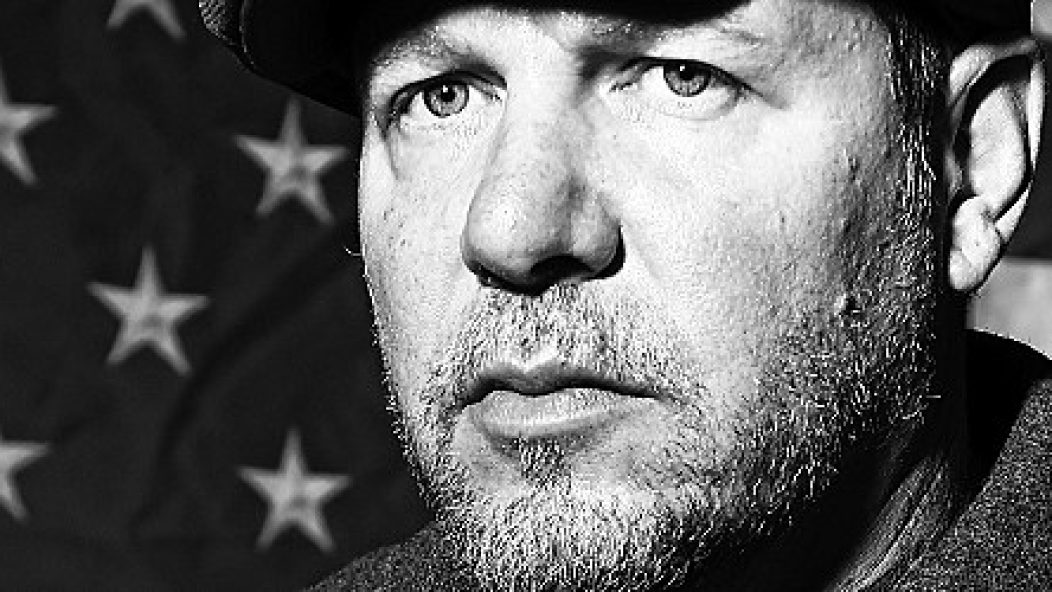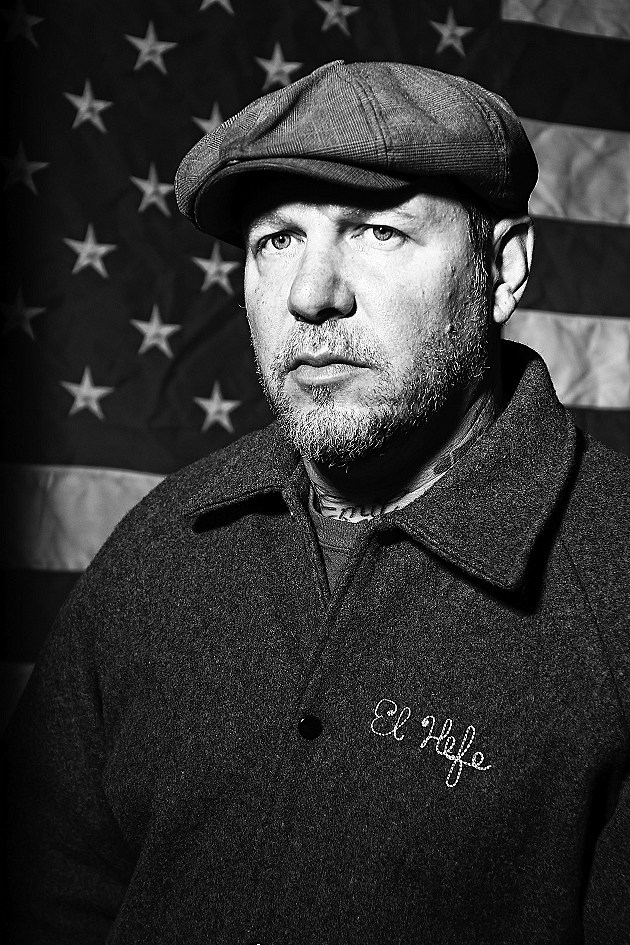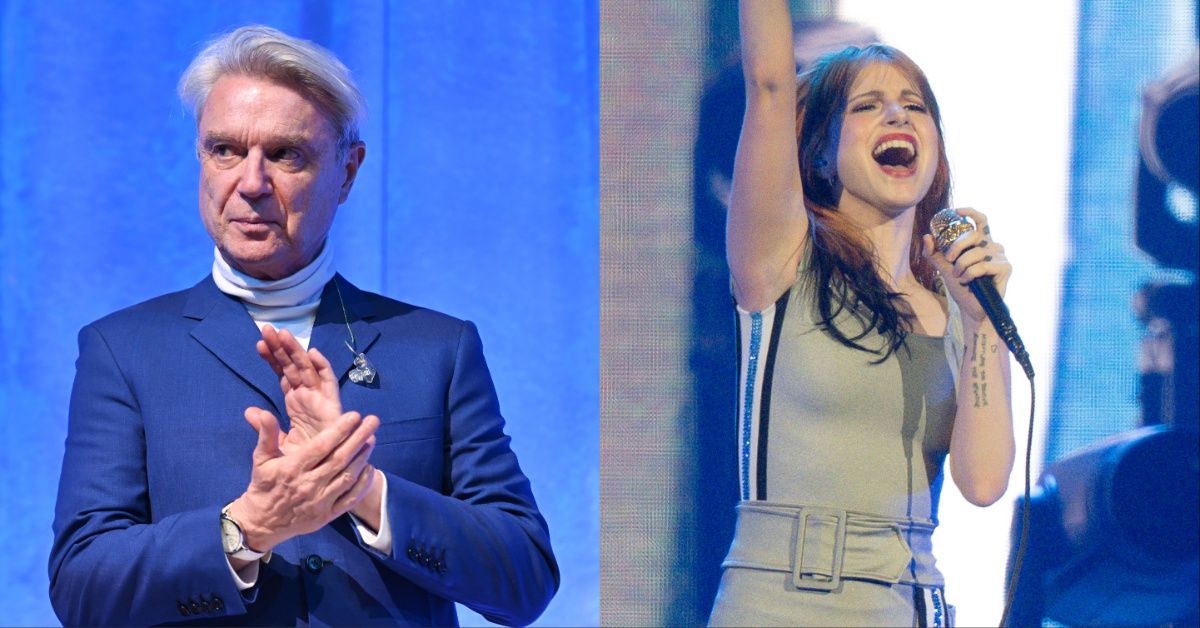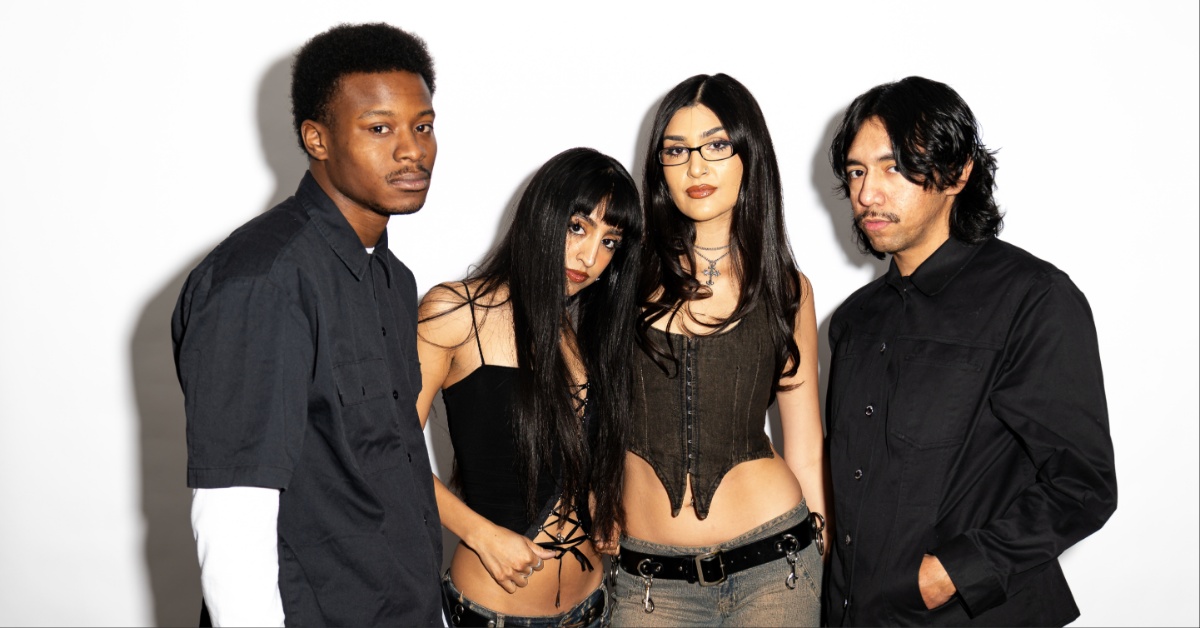
Interview: Roger Miret (Agnostic Front)
. . .
Agnostic Front are stronger than ever. The venerable New York hardcore band, which is often credited with virtually creating the now-legendary NYHC scene, have been a relevant force for over three decades and remain as vital as they did in 1982. Blending punk, oi, metal and newer forms of hardcore into an aggressive yet tuneful combination, the band has honed its attack over these three decades with a prolific, dynamic catalog rivaled by few other bands; to my mind, only Napalm Death is in the same league. Agnostic Front’s latest album, The American Dream Died, was released on April 7, and should dispel any doubts amongst supporters about the band losing their edge—this record is as heavy, intense and honest as anything they have given us over the past 30 years. I had the privilege of speaking with Agnostic Frontman Roger Miret prior to the new record, covering such diverse subjects as touring, longevity, production, aesthetic and the particulars of keeping a band fresh over a period longer than I have lived.
. . .
. . .
Something I like to ask a lot of the people I’ve interviewed is how the songwriting process happens. Y’all have been a band for over 30 years; how, over that time, has the way you all write songs evolved?
To be honest with you, with the songwriting itself, we each form our own ideas and share them as a band. The music comes first, and then I come in and see what the music is telling me, how it’s talking to me. Then, if I hear something that catches me, I can go off of it and do the lyrics. It’s never been lyrics first and then music; there’s only been one song in my career where I’ve done that, which is “For My Family.”
Incidentally, that’s one of my favorite Agnostic Front tracks.
Yeah, I wrote the lyrics first and then the music. And “Warriors,” too. Other than that, [music first] is really how it goes. Being as it’s a digital world now, we live apart: one guy lives in Boston, three in New York, and I live in Arizona, so we kind of go back and forth sending each other ideas. I often jam with a couple guys, a couple friends of mine down here, and that makes my ideas better, you know what I mean?
Interesting. To that end, when Agnostic Front is in the process of writing songs and recording, say with the latest record, how much of an ear does the band take in defining the production? How has that changed over the years? Do you all aim for a more gritty sound, or has it evolved to be cleaner and more polished?
I think we all gravitate towards a grittier sound, because that’s kind of how we sound live. There’s distortion in everything, I like my vocals to have a little something, but I don’t like too many effects. If anything, that’s the only element I prefer on the drier side. We often have to add a little reverb or something, but I don’t like effects. When we’re in the studio, we kind of all know what we want, we have the sounds in our heads, and we just share what comes out through the speakers. If it feels right, feels good, feels alive, then we just roll with it.
You have a pretty distinctive voice, how did you find that?
I’ve got influences, bands I’ve really loved a lot. I’ve always loved Springer from SS Decontrol, and I also love Roger Daltrey from The Who. Springer I always liked a lot. But really, I don’t know, it’s just one of those things where you just start screaming into a mic and that’s what you get, you know what I mean? No style or nothing. Throughout the years maybe I’ve experimented with a couple different things, like more screamy or more growly or whatever, but I think since the One Voice record especially I’ve found my place, where I like to be.
Yeah, yeah.
It’s natural, you know what I mean? Like, I can’t do any of my vocals on a full stomach, I can’t eat for eight hours out [before performing}. I’ve tried as close as six hours and it just messes me up. I just feel like puking (laughs). So, live I know what I gotta do, but for the studio it’s different. For the studio I have to go in and I’ll rip through like five songs, though this last album I went through eleven songs in one shot. It’s not as much of a problem of having to take care of myself and I can eat whatever I want because I don’t have to move around, you know? I’m in one spot, I can just give it. Though, most of the time, in my headphones, when I’m recording, I need to listen to the band loud, louder than the vocals. If I hear more vocals than the band then I kind of hold myself back.I guess my style would be screaming over the band. Even when we play live I don’t like to hear myself in the monitors, I need very, very little. If I ever hear too much of myself in the monitors I get too self-conscious, y’know?
Yeah, I’ve actually found that too, in my limited time doing vocals for various bands, like I need to be able to hear the band more than myself. You mentioned that when you do it live, not eating and whatnot, what else do you do to protect your voice live or on the road, to keep it from going out after long periods of doing it night after night?
Well, to be honest with you, there’s this German pill, I don’t even know what it’s called because it’s German, but it’s this voice thing where I take two of those before I sing, and that’s good enough. It’s more of a calming thing. I always use it the first two or three shows [on a tour], because I’ve started to realize over the years that I always hold back a little at first during those shows. Then, once my voice feels comfortable, towards the middle of the show, I can give it my all. By the time I get home, my voice is a little rough, but it hasn’t affected anything live.
On the subject of touring, y’all have been doing this for thirty years. How in that time has the process of touring changed and what is different now that you’re older, more settled, different lifestyle, more mature, y’know? How does the touring process work nowadays as opposed to how it worked in 1985?
It’s completely different, man. We’re going on 35 years, and three decades ago it was just a matter of “let’s jump in the van and go.” No cellphones, no apps, nothing like that, you just had to know how to read a map. I’m sure there’s a lot of people out there today who don’t even know how to read a map. You had to learn how to read a map and then you had to rely on payphones to get from city to city. You called somebody and had to hope that they picked up. It was a different style of touring, and it was rough. You were in the van, and that was home. But when you’re a kid, that doesn’t matter. You deal with a lot of stuff. But as I got older, and became a father, I need to be home as much as I can. I wanna be with my own children, and I also have my own job, which is something else I didn’t have back then. I was living in an abandoned building, I was actually living in a van for a while, anything. This time, though, I gotta come home and make sure my family’s taken care of. I have to hold my job in between my tours, which is why I tour less, though my boss is at least nice enough to let me do that. But I can’t disappear for that three month period like I used to be able to and tour the country. Now I separate it, like I’m doing now: we’ll do five dates in the Florida area and I’ll come home, and then we’re gonna do five dates in the Northeast and then I’m coming home, then maybe ten dates California and then I’ll come home. For everything in between, hopefully the tour will come out to meet me wherever I have to be, but I can’t be in that van all the time. We all have kids, we’re all older, we all need to get home to our jobs to make sure we have that job security that we never cared about when we were kids.
Hardcore is often referred to as a “family,” such as with the track “For My Family.” It’s very community oriented. In your time, have you found such a family to exist? Like, whenever you go on the road, you know that certain people will be able to put you up or book you certain gigs in certain towns?
Well, we’ve got bands and promoters we’ve been working with pretty much forever. We don’t need to shit on where we eat, if you know what I mean. We remain loyal to the people who’ve been loyal to us. We stay with them. Though the relationship has changed: we used to stay with people [on tour]. We’d stay all night and party, y’know, who cares? But anymore, when some of our good friends know we’re gonna be coming around, their homes are always open for us. It’s more of a home thing, not just “I’m gonna go to someone’s house and just talk about 1981-83 and stay up all night drinking beers.” We prefer to stay with good friends we’ve known for a long time. We just need different necessities that we didn’t back then. Who cares if you didn’t shower for a week back then, but I gotta wash my balls this time around (laughs).
You do find out, as you get older, that showering does matter?
Yeah man, I can’t go to bed dirty anymore. Different place, different mindset.
You can definitely sense, over the course of Agnostic Front’s history, from Victim in Pain to the latest record, the style of music changing, starting out more like fast thrash and gradually becoming more melodic, with a little more complexity that comes with maturity. When y’all are writing songs, can you tell when you’ve hit upon something? Is there ever a conscious effort to mix it up or do these things just evolve organically?
It evolves organically, there’s never a conscious thing, like “we’re gonna write this type of a song now.” We just write songs. When we know we got something good, we know we got something good. We can tell. But we don’t write anything purposely, we tend to recycle ourselves. We’re leaders, not followers, and we tend to be on the leading edge of just about every breaking point the scene has gone through, from the crossover to the speed metal to new school hardcore to old school hardcore to punk. We’ve always been on the leading edge, man, and we always like to revisit ourselves, not purposely but we borrow our old sound back into our new recordings. That’s one thing about this new record that I really like a lot: it’s a little bit more on the early, super crazy hardcore thrash style but it has something for just about every fan who’s been with us throughout our career.
And that’s something I’ve always liked about Agnostic Front: even hearing this latest record, though it may sound different than those before it, it remains clearly an Agnostic Front record. The elements that comprise the band from 1981 on are still there, there’s just new stuff now to keep it interesting
You’ll hear one of our records and it’s one way and then the next record comes out and it’s completely different. But it’s still Agnostic Front. You can still hear my vocals, you can still hear the band. We’re an active band, we’re constantly evolving. And we’re also being inspired too: we’re watching all these young bands [that we play with] and learning. When you’re out there all the time, you grow with your music and you grow with your scene. If you decide not to, you just get stuck in one spot.
I guess that’s part of the trick of staying together so long.
Absolutely.
To which end, keeping it musically interesting is one thing, but to what else do you credit Agnostic Front’s longevity?
I think the secret to our longevity is that we’re true, we’re real, we’re passionate about what we do. And people want to relate to that. Nobody wants to be a part of something that’s not genuine. I think that’s why people gravitate to us and is the secret to our longevity and success. We’re genuine people, the band’s genuine, we have genuine stuff to say. At some points it can be controversial, but you know what? Some people don’t want to be confronted because the truth hurts. And that confrontation is sometimes important because you get people talking. And if I sometimes have something to say, and Im back up everything I have to say for sure, most of it is true life experiences, I like a good challenge. I like people to ask me stuff and I like to be challenged. And I’m not ignorant. I’ll take whatever the challenge is and get the best out of it and I’ll learn something from it. I’m not 100% right, I’m not all your answers, but I’m willing to accept when I’m wrong and learn something from it. That’s what hardcore is all about.
When you’re a teenager, you are often quick to fly off the handle, but the more you learn, the better a perspective you have about the world. You mentioned often being controversial: do you feel that the Agnostic Front aesthetic has changed from 1981 to the new record? Back in the ’80s you had a lot of songs written about the American skinhead scene, then kind of moved into a punk look, then into the old school hardcore look. Has the look and aesthetic of the band changed and do you feel that, if it has, it has been a logical progression?
Personally I don’t think we ever put ourselves with a particular scene. I think Agnostic Front, from the very beginning, has always talked about A. unity and bringing scenes together and B. overcoming oppression. People just put us in different categories. If you ask me about Victim in Pain, it’s a punk record. People say “it’s a hardcore record,” or whatever they wanna say, but that’s a Grade A punk record, you know? People are quick to judge books by their covers. The bottom line is: we love living in this country, this is a beautiful country, but we’ve always questioned authority and the oppression of society and our government. And that’s where you may get some of the different things going about controversy or or scenes, or people saying “oh, they’re Pro-American” or whatever. Whatever people think about us, if anything we’re more American than a lot of people because we truly fight for liberty and justice. People are quick to throw us into different categories, but the one category we will always stay strong to is New York punk and hardcore. And the great thing about a lot of these different movements colliding with each other is that without them we wouldn’t have had the great movements that made us possible, like crossover or hardcore. People are quick to point fingers, but the truth is we’re just a real American band that want to fight and overcome oppression by any means necessary. We can’t change the world, but we understand that we can make a difference, and that’s what we’re trying to do.
That’s a very nuanced answer, and it’s important to have that sense of nuance in all aspects of life. That’s the last question I’ve got; the last words, as always, are yours
Thank you for the interview, thank you to all our friends for believing in us, and thank you for buying our records and supporting the movement. And not just ours, but your own movements, going to your local shows and just being there and keeping it alive. That’s what it’s about. Someday we’ll be gone, but we’ll have the youth to carry our flag. So, thanks to you all.
As one of the youth, I mean to carry that flag for a long time yet to come.
. . .
The American Dream Died is out now via Nuclear Blast. Follow Agnostic Front on Facebook.
. . .












